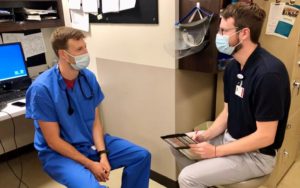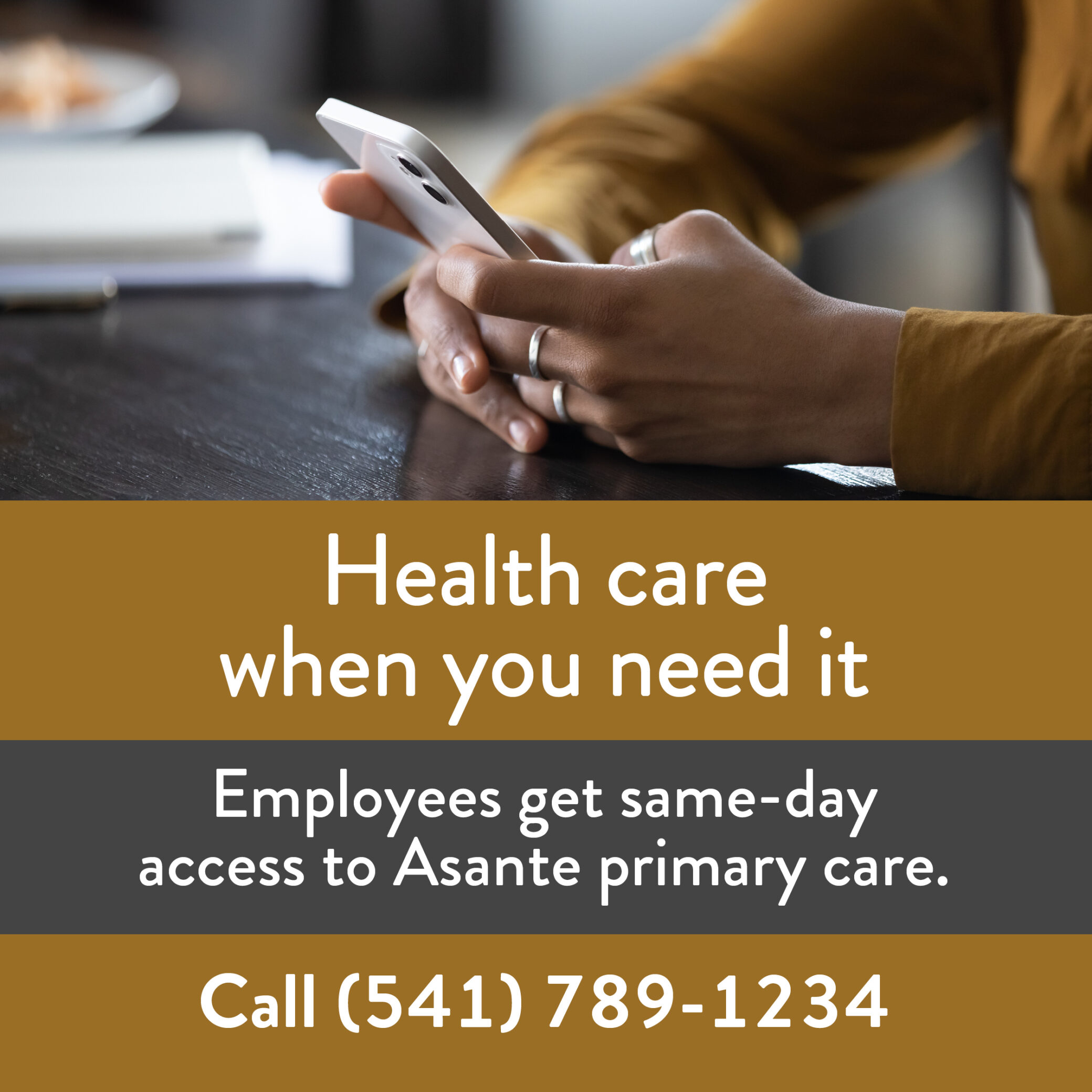Share:
Webinar: “Sleep affects everything”
Along with nutrition, fitness and mental health, sleep health is a pillar of overall health – it affects everything about us, says Michael Swartz, insomnia educator with Asante Sleep Center. Like all pillars, when one becomes weak, the others become stressed.
When we don’t sleep well enough or long enough, we may be moody, forgetful, impatient, tired, fatigued or sleepy during the day. After 24 hours of being awake, our reaction time becomes similar to being legally intoxicated. Our sleep-deprived bodies are looking for energy and we may eat more or eat higher caloric foods, driven by changes to our hunger hormones as well. This is thought to be caused by the disruption of two primary hunger hormones, Ghrelin (make too much) and Leptin (don’t make enough). We also become more resistant to insulin, and studies have shown after just a few nights of insufficient sleep we can enter a pre-diabetic state.
Other hormones disrupted by insufficient sleep include cortisol and melatonin. Cortisol, our main stress hormone, normally decreases at night and rises in the morning. With less sleep, cortisol can remain elevated much of the night. Melatonin, the “vampire hormone,” is a complex hormone strongly linked to sleep. Melatonin is produced during darkness (night).
While awake at night, many people are engaged with their electronic back-lit devices. These devices emit the type of light most effective at suppressing melatonin production. Reducing stress, avoiding caffeine in the afternoon and evening (caffeine suppresses melatonin), and following good sleep hygiene tips help to normalize our production of hormones.
Those who snore may have sleep apnea, a dangerous sleep-related breathing disorder affecting the entire cardiopulmonary system in our bodies. Untreated sleep apnea significantly increases the risk of heart attack, stroke and daytime accidents due to sleepiness. Although more common in men, rates of women developing sleep apnea rise significantly with the onset of perimenopause and then menopause. This is thought to be caused by the loss of production of reproductive hormones. In fact, the menopause-related insomnia often attributed to hot flashes can be the onset of sleep apnea (or both). Alcohol consumption close to bedtime worsens snoring and sleep apnea.
There are many other types of primary sleep disorders (legs moving periodically, frequent bathroom trips, sleep-eating, dream enactment, nightmares, narcolepsy, etc.). Most cause sleep disruption, morning grogginess, afternoon sleepiness or fatigue, and many can also disrupt the sleep of their bed partner.
Those with ongoing insomnia (frequent difficulty falling asleep or getting back to sleep) may turn to sleeping medication, something that can be problematic in a variety of ways: nighttime sleep parasomnias (walking, eating, etc.), increased fall risk, dependency, etc. Long-term use of some medications used for sleep (even some over-the-counter sleeping medication) has been linked to early cognitive decline.
Then there are those who by choice simply don’t protect their sleep time – they deprive themselves of adequate sleep time, or they have poor sleep hygiene (uncomfortable bed, room too warm, problems with caffeine (a stimulant) or alcohol (a depressant that becomes a stimulant), etc.
When it comes to learning about your own sleep, it can be helpful to identify into which of three general categories of sleep trouble you fall:
- Can sleep, but just don’t get enough.
- Can sleep, but don’t seem to feel rested during the day.
- “Can’t sleep” despite having “tried everything.”
These categories are general and not mutually exclusive – there can be overlaps. Which category(s) do you think you may be in? If category No. 1, try to give your sleep a higher priority. If you are in categories 2 or 3, ask your medical provider about your sleep. An effective treatment may be available and waiting for you!
If you’re still struggling with your sleep but just don’t know what’s going on, talk to your doctor or call the Asante Sleep Center at (541) 789-4320.
TIPS FOR BETTER SLEEP
Uncomfortable bed? Rotate or flip the mattress. If you can afford a new one, get one. (If not, look into financing options, which can often be more affordable than you think.) Even changing out your uncomfortable pillow can help.
Bedroom too hot or too cold? If the room is too warm, take a cool shower before bed, change to lighter bedding or pajamas, run a room fan or leave the window open a crack. If it’s affordable, run some air conditioning. If the room is too cold, take a hot soak 30 minutes before bedtime, add blankets to your bed, wear heavier pajamas and socks.
Too much daytime caffeine or evening alcohol? Slowly adjust caffeine so your last one is at lunch. Take steps to reduce or eliminate evening alcohol.
Hooked on TV or phone (“screen time”) before bed or in bed? Replace screen time with old-school activities before bed. Try reading a paper book, listen to audio stories, work on crossword or jigsaw puzzles, or relax with a coloring book.
If you have a question, please contact the author or relevant department directly.



